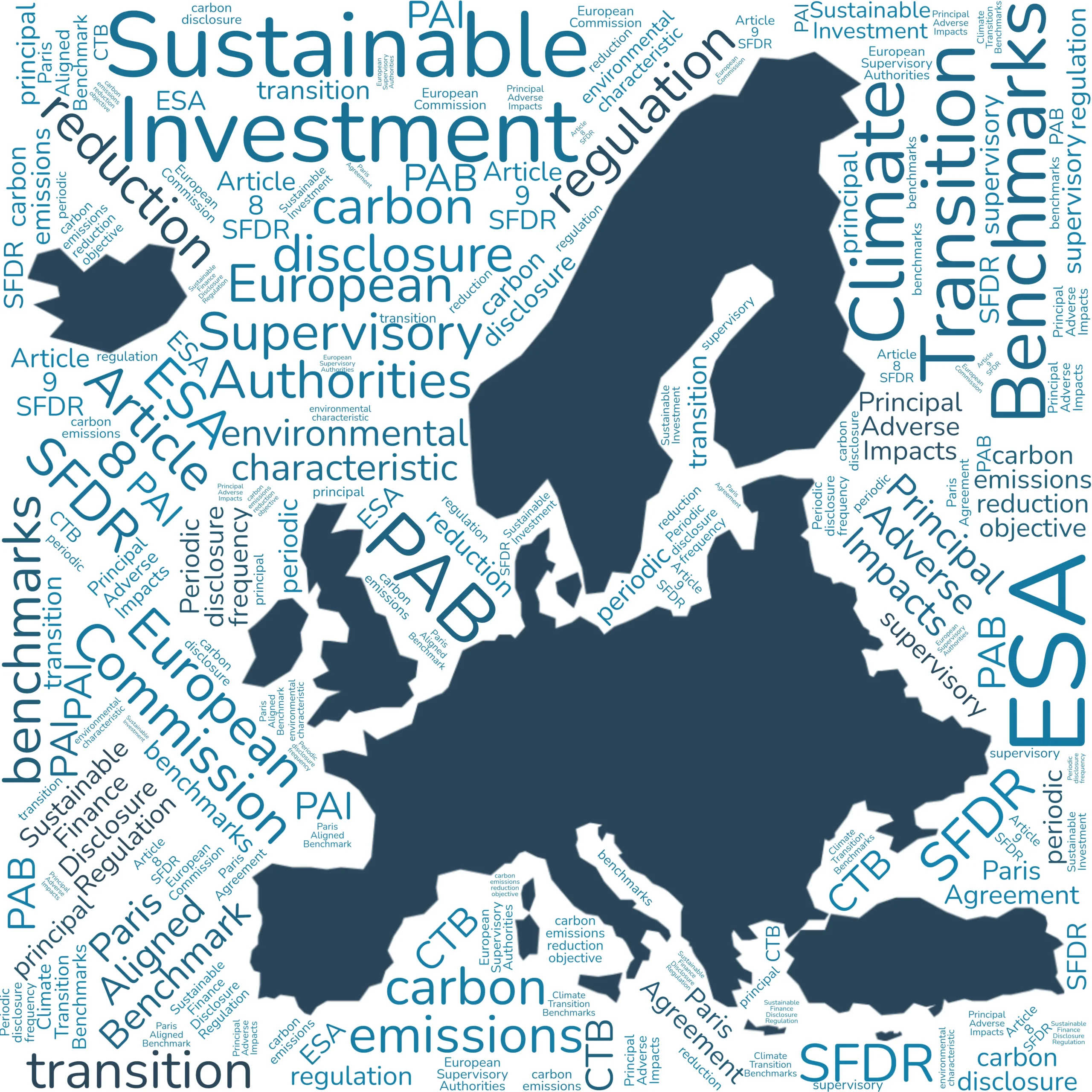The difference between Sustainability and ESG
“Are they not the same?” is a question many of our current and prospective clients ask us with surprise during our early interactions. The terms they are referring to are “sustainability” and “ESG”. For many, these terms are synonymous and are interchangeably used. The reason for this scenario could be because a lot of media coverage on the topic uses these terms interchangeably without any distinction. While differences between the terms may look trivial, there are some significant differences, and it is essential to have clarity on the same. In this article, we will focus on the subtle and not-so-subtle differences between these terms.

What is ESG?
ESG is an acronym that stands for Environmental, Social, and Governance. We have covered this topic quite in detail in our content section. It serves as a performance measurement framework primarily used in the financial investment industry. ESG metrics provide a means to evaluate a company’s sustainability practices and its adherence to responsible business practices.
As an essential component of corporate social responsibility (CSR), ESG allows companies to assess their environmental impact, social policies, and governance structures. It considers factors such as a company’s carbon emissions, waste management practices, labour rights, diversity and inclusion initiatives, executive compensation, board composition, and overall ethical conduct.
ESG is valuable for investors who seek to align their financial decisions with their values. By incorporating ESG considerations into investment strategies, individuals and institutions can support companies that demonstrate responsible practices and contribute to sustainable development.
Got questions about sustainability?
Book a free and nonbinding discovery call to discuss your questions with one of our sustainability experts, and learn how we can help you.
Sustainability: A Broader Perspective
Sustainability, on the other hand, has a more expansive definition. According to the United Nations Brundtland Commission, “sustainability” is defined as “meeting the needs of the present without compromising the ability of future generations to meet their own needs.” (details can be found here). It refers to the capacity of humanity to satisfy present needs without exerting excessive strain on the natural environment or compromising the ability of future generations to meet their needs. Sustainability encompasses the activities and practices of governments, individuals, firms, and financial institutions aimed at achieving long-term ecological balance, social well-being, and economic viability.
While ESG predominantly focuses on corporate practices and performance, sustainability encompasses a wider range of aspects beyond the business context. It involves efforts to conserve natural resources, promote renewable energy, address climate change, protect biodiversity, improve social equity, and ensure economic prosperity for all.
Sustainability initiatives can be observed at various levels, from individuals adopting eco-friendly lifestyles to governments implementing policies and regulations that encourage sustainable practices. Financial institutions also play a role by incorporating sustainability criteria into their lending and investment decisions, thereby influencing the allocation of capital towards environmentally and socially responsible endeavours.
Connecting Sustainability and ESG
Although sustainability and ESG differ in their scope and primary application, they are interconnected. ESG metrics provide a framework for assessing a company’s sustainability performance. By evaluating a company’s environmental impact, social practices, and governance standards, ESG helps determine its overall sustainability credentials.
In this sense, ESG serves as a tool to quantify and measure sustainability within the corporate context. It provides a standardised framework for evaluating and comparing companies’ sustainability efforts, allowing investors to make informed decisions that align with their values and support sustainable practices.
Conclusion
While sustainability and ESG are related concepts, they differ in their focus and application. Sustainability encompasses a broader perspective, addressing ecological, social, and economic dimensions of long-term well-being. ESG, on the other hand, is primarily a corporate sustainability performance measurement framework used in the financial investment industry.
ESG allows investors to evaluate a company’s sustainability practices, including its environmental impact, social policies, and governance structure. By incorporating ESG considerations into investment strategies, individuals and institutions can support companies that demonstrate responsible practices and contribute to sustainable development. Understanding the distinction between sustainability and ESG is crucial for promoting a holistic approach to environmental and social responsibility.
About NordESG
NordESG is an advisory firm helping corporates develop, articulate and execute their ESG and sustainability strategies. Our work includes sustainability performance reporting support under various ESG frameworks, strategy development or conducting materiality assessments. By doing so, we help businesses meet their disclosure compliance requirements like CSRD but also help them proactively communicate their strategy to other stakeholders like investors, customers and local communities in which they operate. Our work is focused mainly on Europe and North America.
Discovery Call
Book a free discovery call below
Get in touch via email
Disclaimer
This communication is marketing material. The views and opinions contained herein are those of the author(s) on this page, and may not necessarily represent the views expressed or reflected in other NordESG communications or strategies.
This material is intended to be for information purposes only. It is not intended to provide and should not be relied on for accounting, legal or tax advice, or investment recommendations. Reliance should not be placed on the views and information in this document when taking individual investment and/or strategic decisions. Information herein is believed to be reliable, but NordESG does not warrant its completeness or accuracy.
Some information quoted was obtained from external sources NordESG consider to be reliable. No responsibility can be accepted for errors of fact obtained from third parties, and data and information contained in this communication may change in the future. The views and opinions expressed in this communication may change.